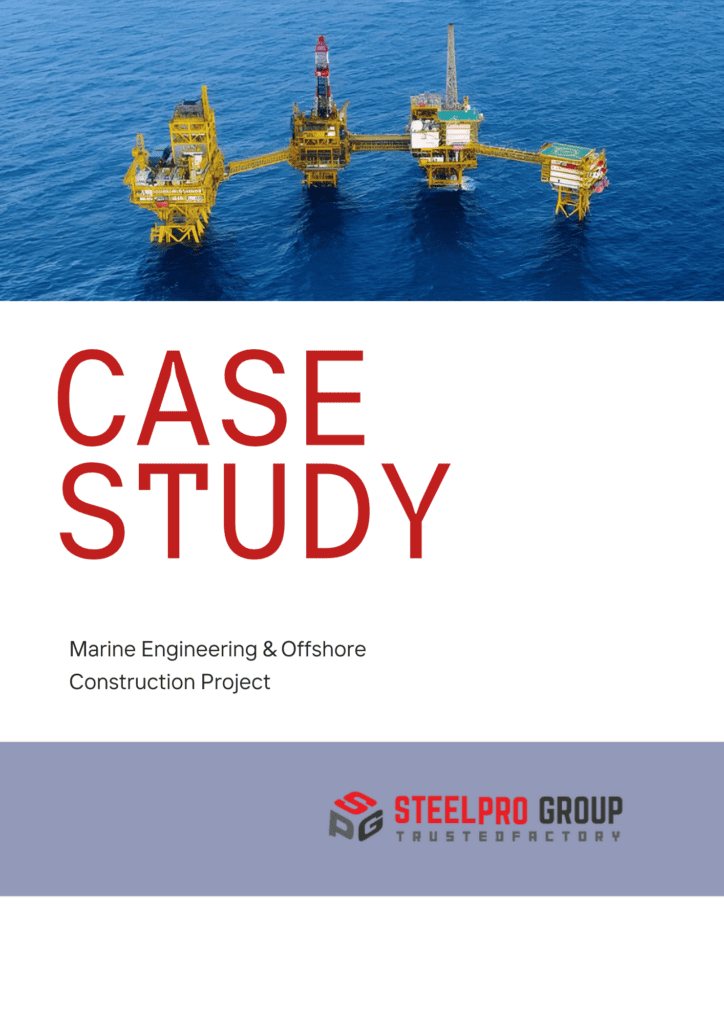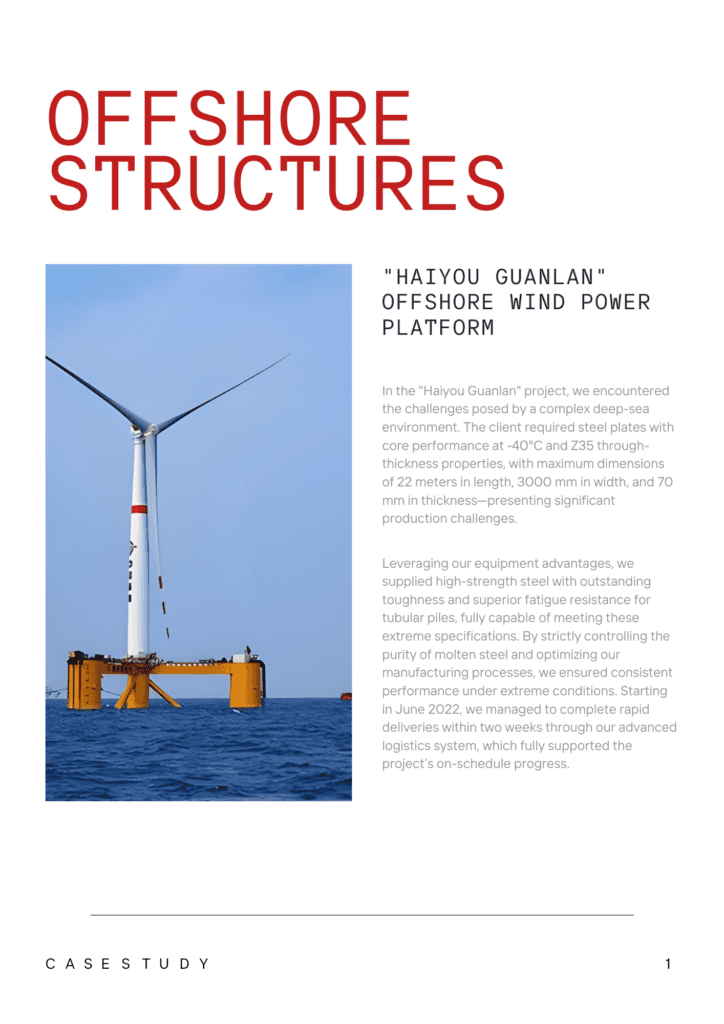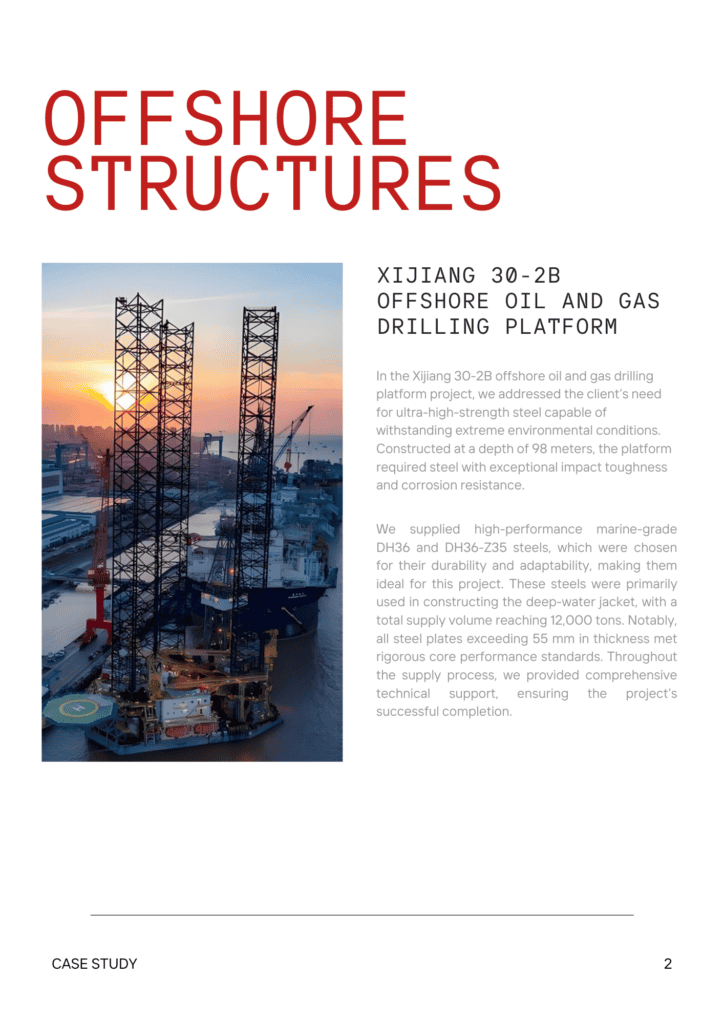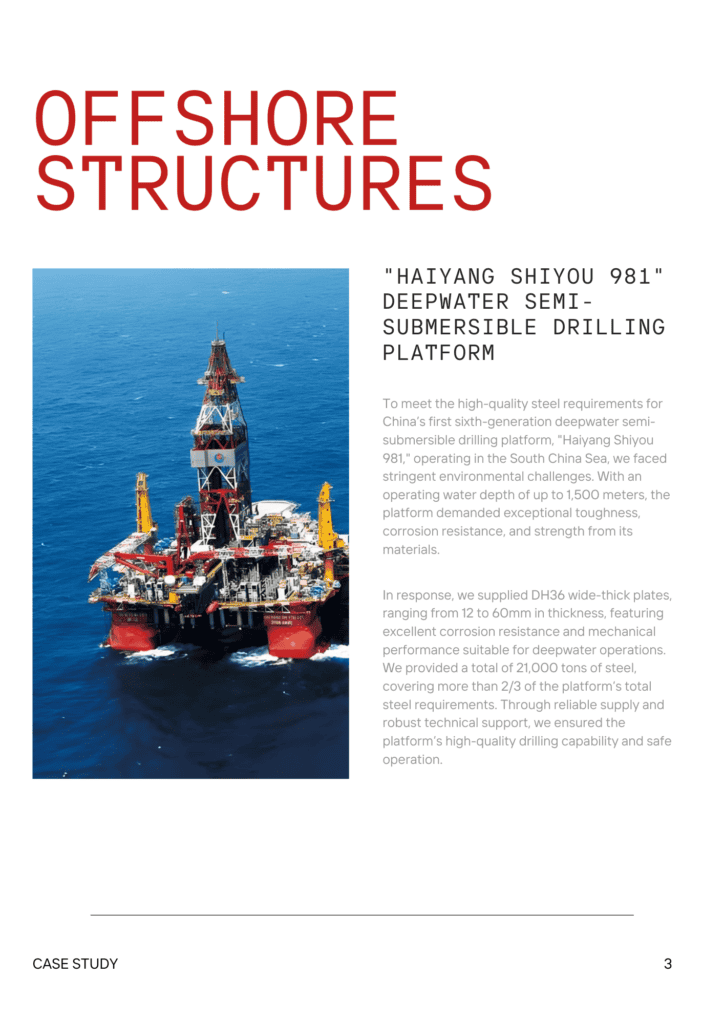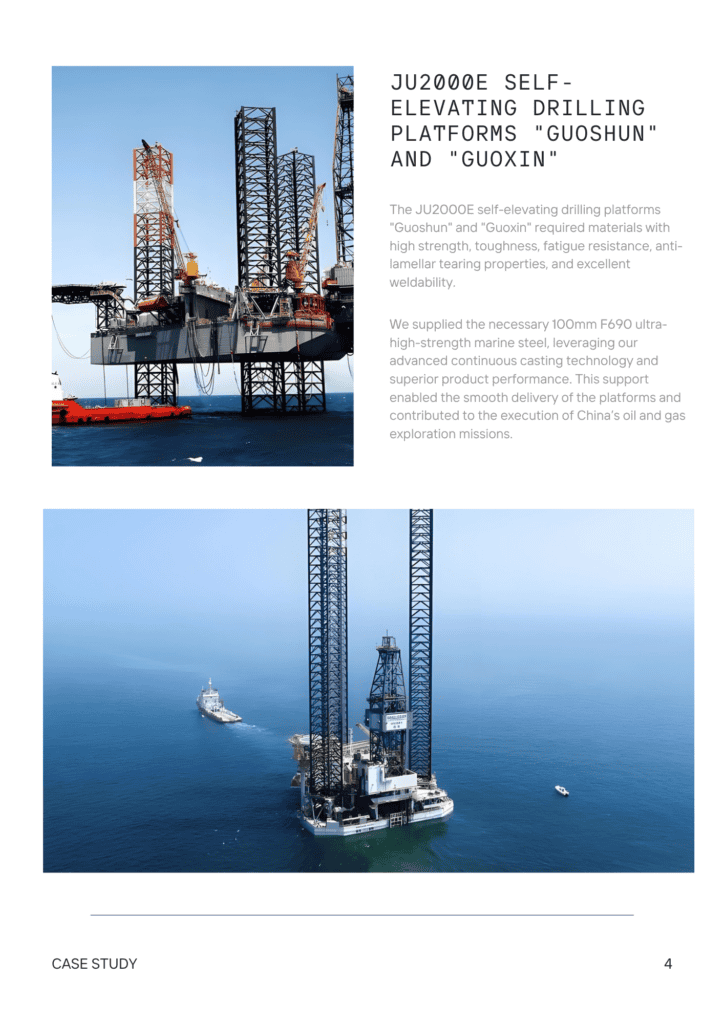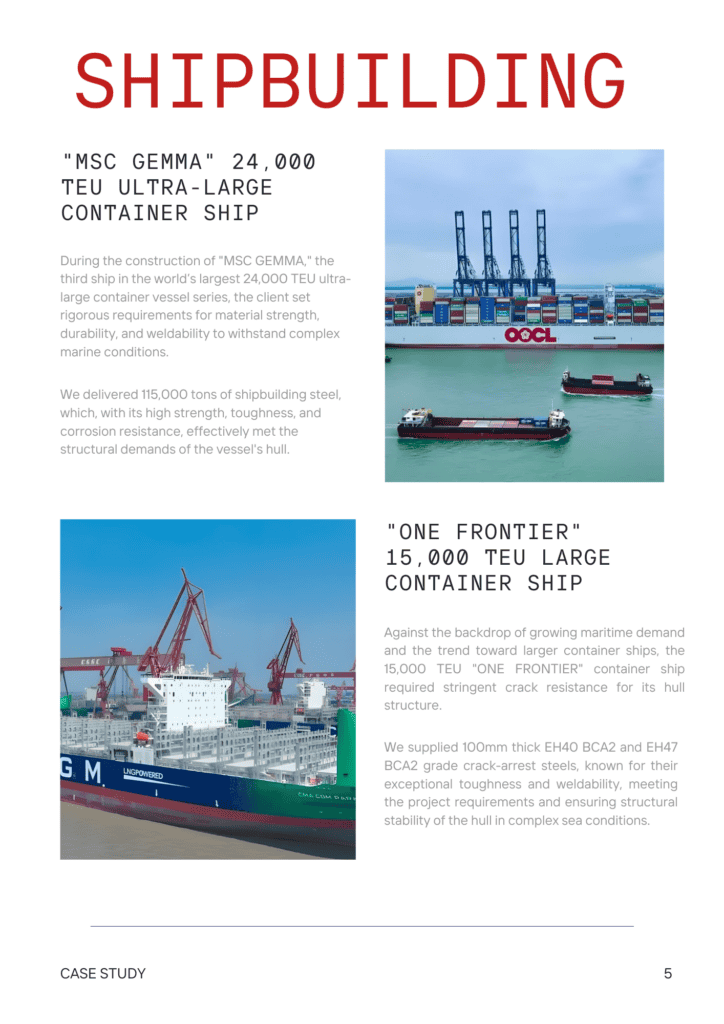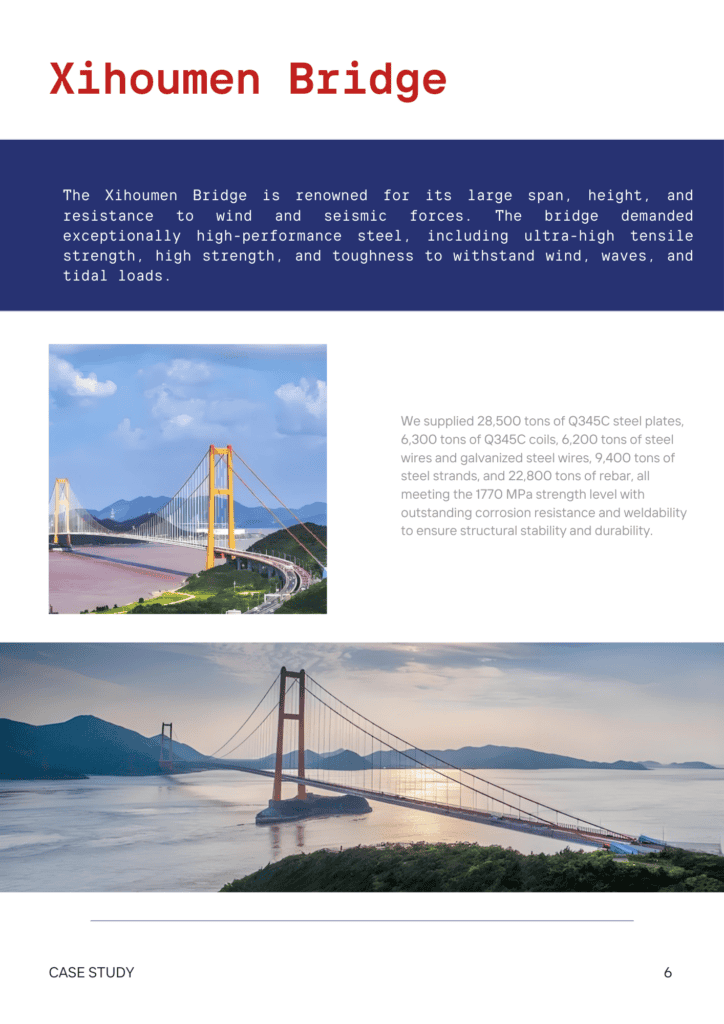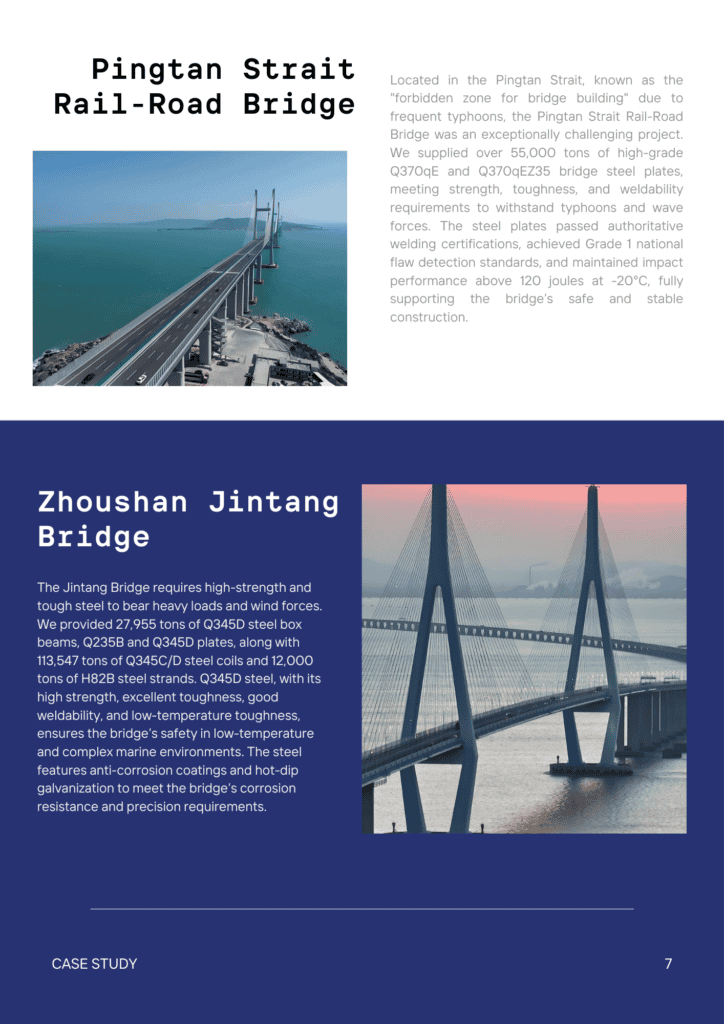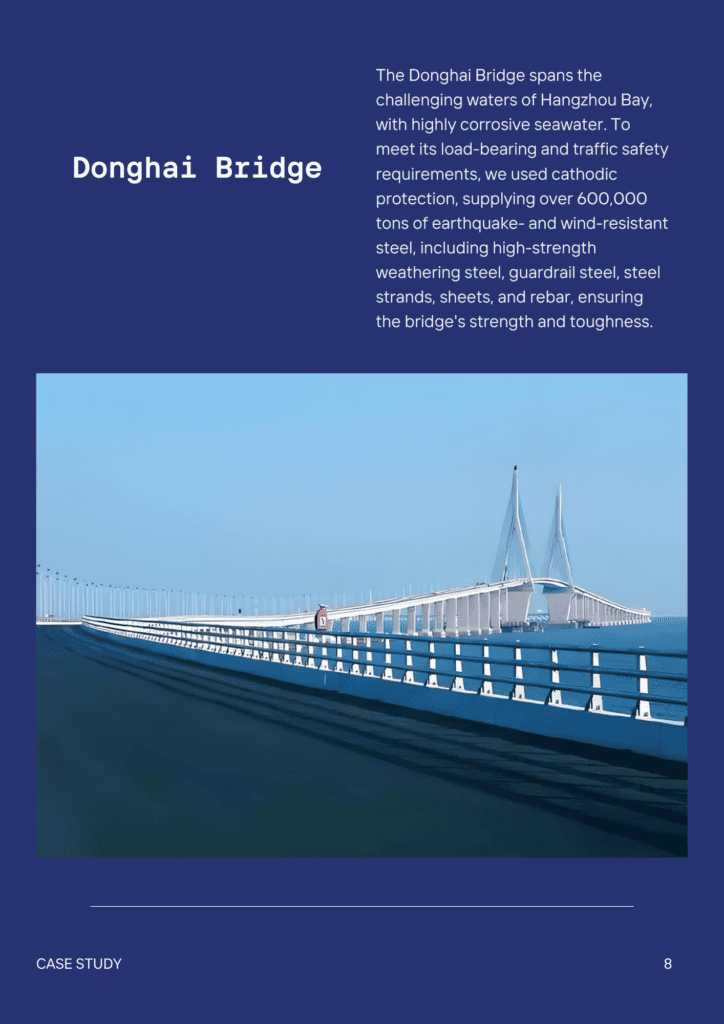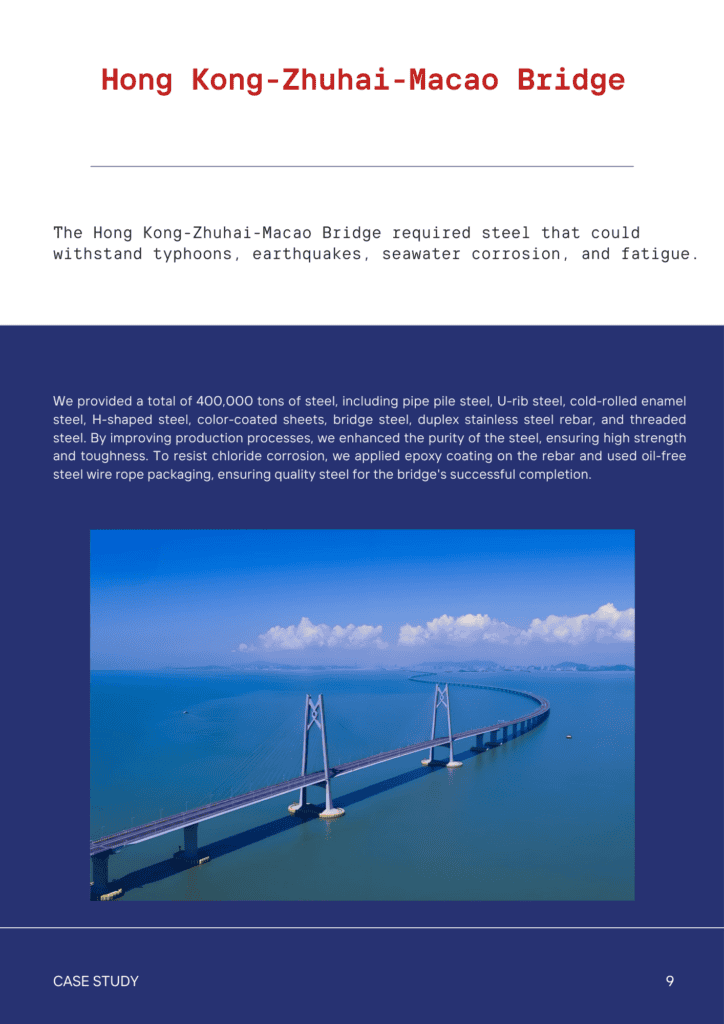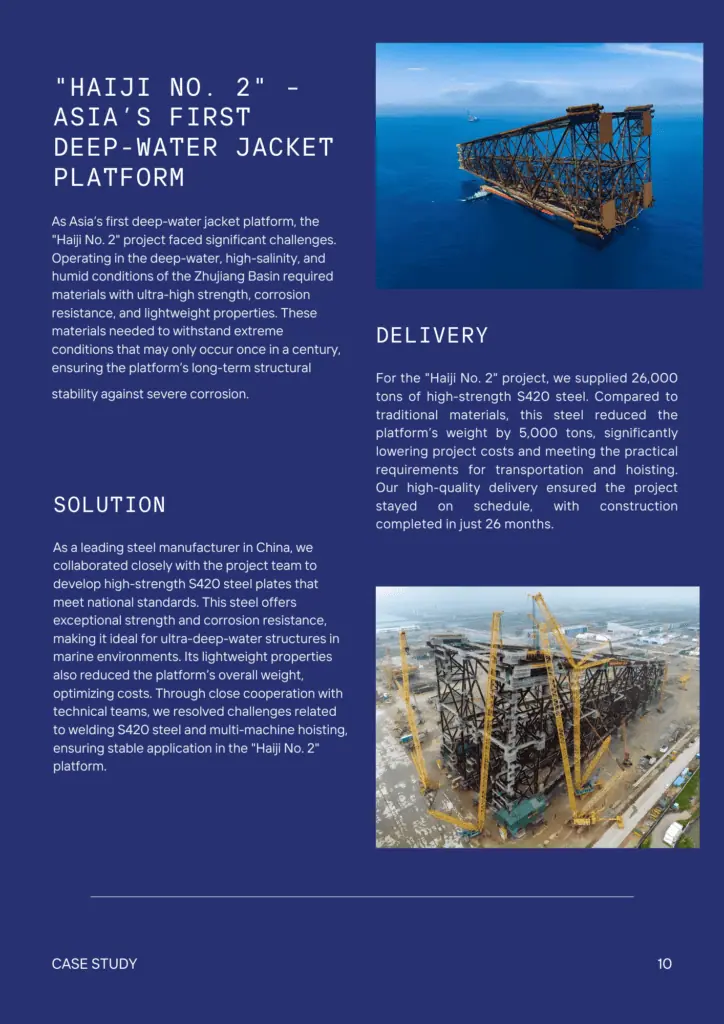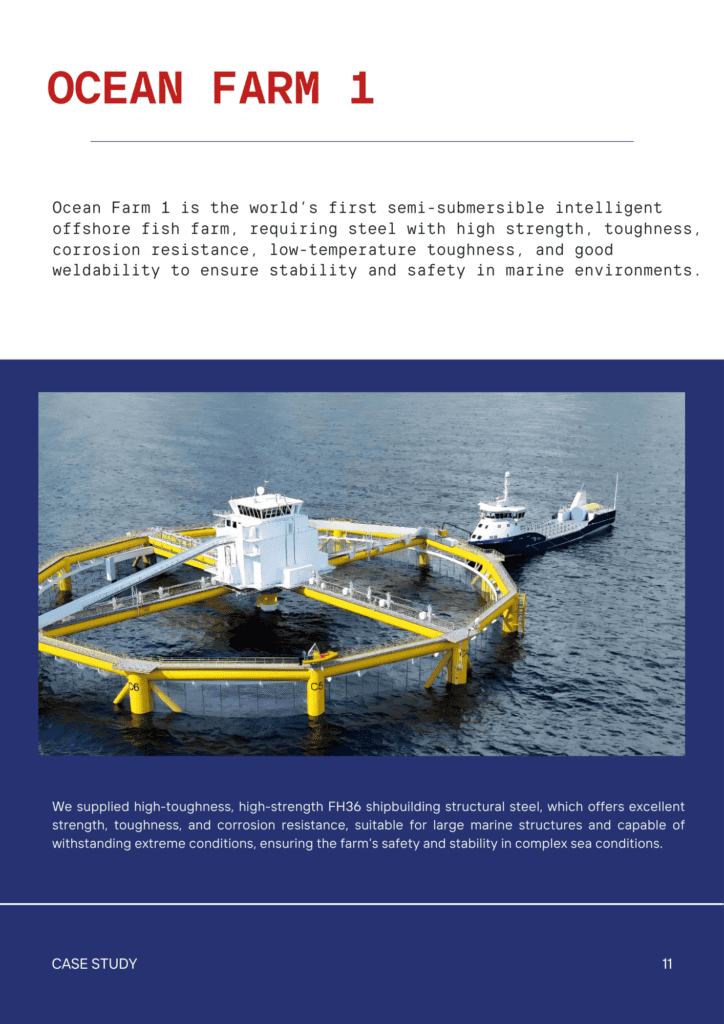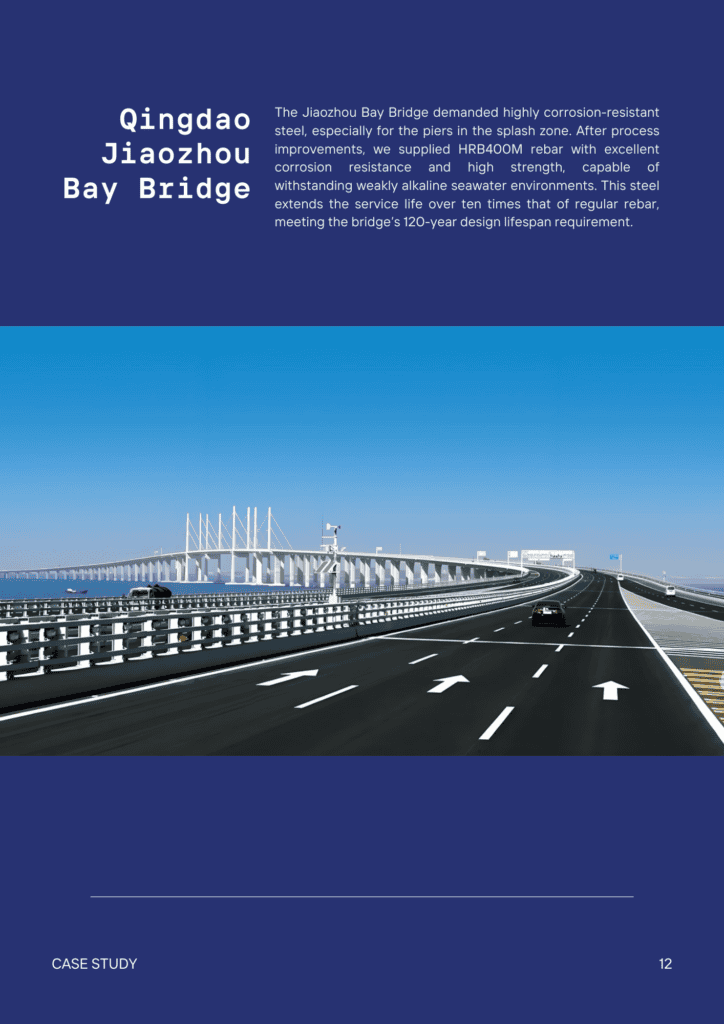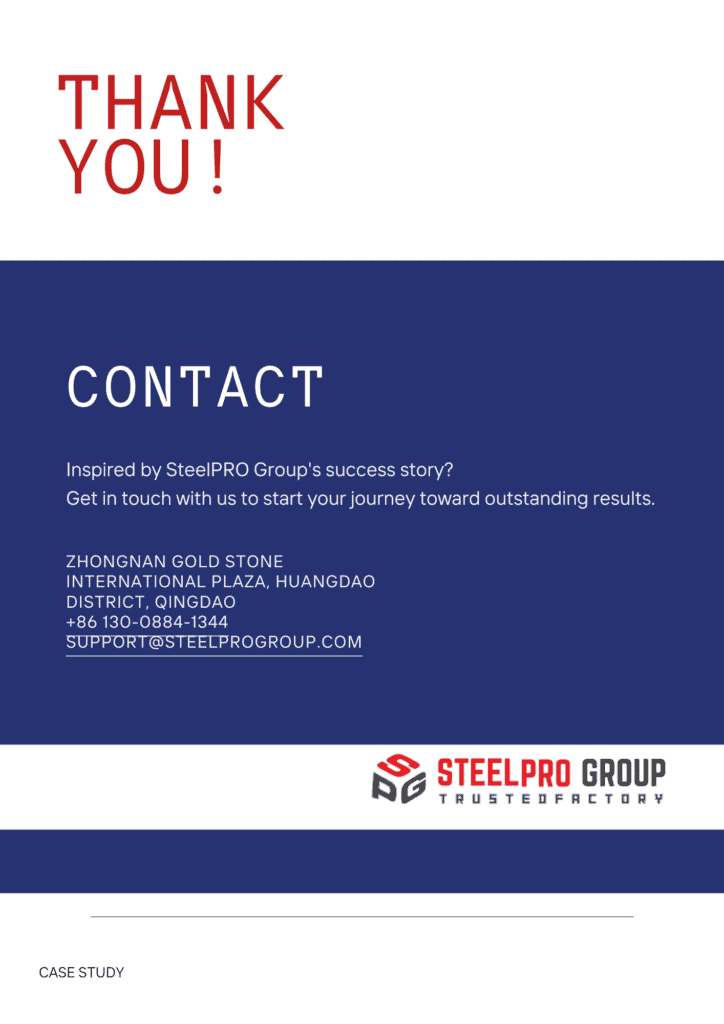Q420q Series | Structural Steel for Bridge
Q420q Series | Structural Steel for Bridge
SteelPRO Group provides Q420q series structural steel plates for bridges in stock.
Standards: ISO, ASTM/ASME/AISI, EN, GB/T, DIN, JIS, BS, etc.
Grades: Q420qD/E/F, Q420qDNH/ENH/FNH
Material: High-Strength Low-Alloy Steel (HSLA)
Thickness: 6-100 mm, or customized
Width: 900-4800 mm, or customized
Length: 3000-25000 mm, or customized
Shape: Plate, Profile (I-beam, H-beam, Angle, Channel, Square bar, Flat bar), Pipe, Coil, Bar, or as request
Condition of Delivery: N/HR/A/T/Q+T/TMCP, or as request
Stock: In stock
Origin: Hebei/Henan/Jiangsu, China
Port: Qingdao
Description
What Is Q420q?
Q420Q series steel is high-strength, low-alloy structural steel composed mainly of carbon, manganese, silicon, and micro-alloy elements like vanadium and niobium. It offers excellent strength, impact resistance, toughness, and weldability, even at low temperatures, with good corrosion resistance for harsh environments.
Naming Rules:
- Q: Yield strength.
- 402: Minimum yield strength of 420 MPa.
- q: Suitable for bridge structure.
- C/D/E/F: Quality grades. Toughness at 0℃/-20℃/-40℃/-60℃. (e.g. Q420qD)
- NH: Weather-resistant, designed to withstand atmospheric corrosion. (e.g. Q420qDNH)
- Z-: Z-direction performance grade, such as Z15, Z25. (e.g. Q420qDNHZ15)
Q420q series steel is widely used in bridges, heavy machinery, construction equipment, and offshore structures, where high load capacity and durability are essential.
Characteristics of Q420q Series Steel
- Strong and durable, handles heavy loads easily.
- Resistant to cracking, even under pressure.
- Excellent corrosion resistance, lasts longer in tough environments.
- Easy to weld and shape for different applications.
- Ideal for construction, bridges, and industrial equipment.
Chemical Compositions
| Element | Q420qD | Q420qE | Q420qF |
|---|---|---|---|
| Carbon, C | ≤0.11 | ≤0.11 | ≤0.11 |
| Silicon, Si | ≤0.55 | ≤0.55 | ≤0.55 |
| Manganese, Mn | 1.00 – 1.70 | 1.00 – 1.70 | 1.00 – 1.70 |
| Phosphorus, P | ≤0.025 | ≤0.020 | ≤0.015 |
| Sulfur, S | ≤0.015 | ≤0.010 | ≤0.006 |
| Chromium, Cr | ≤0.50 | ≤0.50 | ≤0.50 |
| Nickel, Ni | ≤0.30 | ≤0.30 | ≤0.30 |
| Copper, Cu | ≤0.30 | ≤0.30 | ≤0.30 |
| Molybdenum, Mo | ≤0.20 | ≤0.20 | ≤0.20 |
| Nitrogen, N | ≤0.008 | ≤0.008 | ≤0.008 |
| Titanium, Ti | 0.006 – 0.030 | 0.006 – 0.030 | 0.006 – 0.030 |
| Vanadium, V | 0.010 – 0.080 | 0.010 – 0.080 | 0.010 – 0.080 |
| Niobium, Nb | 0.010 – 0.090 | 0.010 – 0.090 | 0.010 – 0.090 |
| Boron, B | ≤0.0005 | ≤0.0005 | ≤0.0005 |
| Aluminum, Al | 0.010 – 0.045 | 0.010 – 0.045 | 0.010 – 0.045 |
| Hydrogen, H | ≤0.0002 | ≤0.0002 | ≤0.0002 |
Note:
- According to standard GB/T 714-2015.
- Al, Nb, V, and Ti can be added individually or in combination. When added individually, they must meet the specified limits in the table. If combined, at least one element must meet the table’s minimum limit, and the total of Nb + V + Ti ≤ 0.22%.
- Total aluminum content must be 0.015% – 0.050%.
- By mutual agreement, Mn content can be increased to 2.00%.
- Analysis of B and H is not required if the supplier guarantees their presence.
Physical Properties
| Property | Metric | Imperial |
|---|---|---|
| Density | 7.85 g/cm³ | 490.5 lb/ft³ |
| Melting Point | 1450 – 1520°C | 2642 – 2768°F |
| Thermal Conductivity | 33.2 W/m·K | 19.18 BTU/(hr·ft·°F) |
| Electrical Conductivity | ~6.99 MS/m | Same |
| Specific Heat Capacity | 500 J/(kg·K) | 0.119 BTU/(lb·°F) |
| Thermal Expansion Coefficient | 12 × 10⁻⁶ /°C (20–100°C range) | 6.7 × 10⁻⁶ /°F (68–212°F range) |
| Electrical Resistivity | 0.17 μΩ·m | Same |
Mechanical Properties
| Grades | Yield Strength (MPa) min for Thickness in mm | Tensile Strength min. | Elongation | V-Type Impact Test | ||
|---|---|---|---|---|---|---|
| Q420qD | ≤50 | >50≤100 | MPa | % min | Test Temperature ℃ | Impact Absorption Energy KV₂/J |
| 420 | 410 | 540 | 19 | -20 | 47 | |
Industries & Applications
| Industry | Common Applications |
|---|---|
| Construction | Bridges, High-rise Buildings, Heavy Frames, Offshore Platforms |
| Manufacturing | Machine Frames, Cranes, Hydraulic Presses, Industrial Robots |
| Energy | Wind Turbine Towers, Oil Rigs, Power Plant Structures, Pipelines |
| Automotive & Railway | Train Frames, Truck Chassis, Car Safety Components, Railway Bridges |
| Shipbuilding | Hull Structures, Decks, Bulk Carriers, Offshore Vessels |
| Defense | Armored Vehicles, Military Bridges, Missile Launch Platforms, Radar Structures |
Machining
Heat Treatment
- Annealing: 680–720°C, furnace cooling to 300°C, then air cool.
- Normalizing: 850–900°C, air cooling.
- Quenching: 880–920°C, water or oil cooling.
- Tempering: 200–650°C, air cooling, based on desired hardness.
- Stress Relief: 500–600°C, air cooling after 1-2 hours soak.
Surface Finish
- Shot Blasting: Removes rust, scale, and impurities.
- Pickling: Uses acid to clean the surface.
- Phosphating: Provides corrosion resistance and adhesion.
- Galvanizing: Adds a protective zinc layer.
- Painting/Coating: Enhances appearance and corrosion resistance.
- Polishing: Improves surface smoothness and finish.
- Anodizing: Creates a durable oxide layer (if applicable).
*Customization is available upon request.
Our Service
SteelPRO Group – manufacturer and solution provider for special steel, offering multi-industry application solutions and customised services, 100% quality free, accompanying customers in their growth!
Our Quality Control
- Roundness
- Tolerance
- Microstructure
- Non-Destructive Testing
- Destructive Testing
- Process Control
Service Integration Processing
- Welding
- Metal Fabrication
- CNC Machining
- Lathe
- Forming
QUESTION 1
QUESTION 2
QUESTION 3
QUESTION 4
QUESTION 4
CONTACT
CONTACT
Certifications







Other Products
-
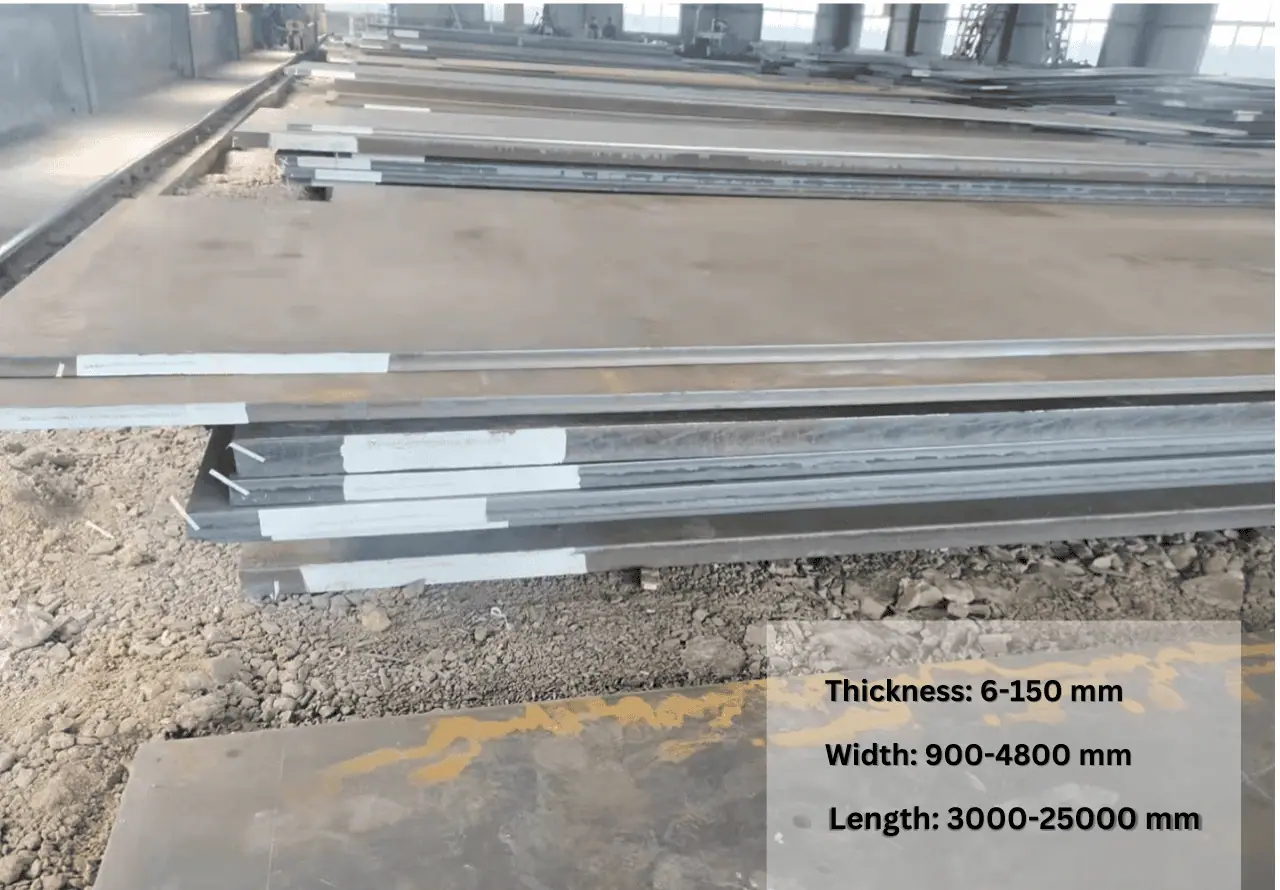
-
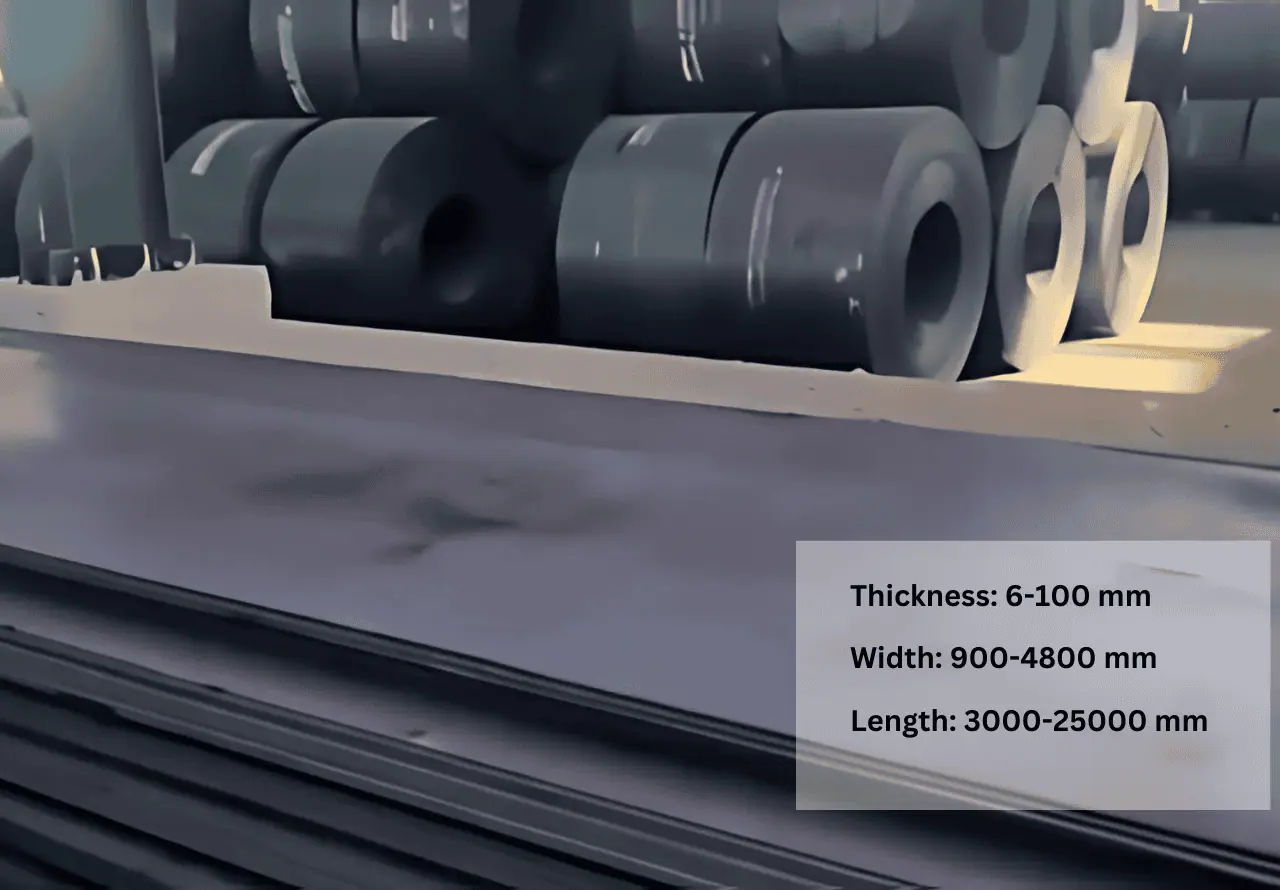
SteelPRO Group offers FH550 high-strength structural steel plates for shipbuilding....
-
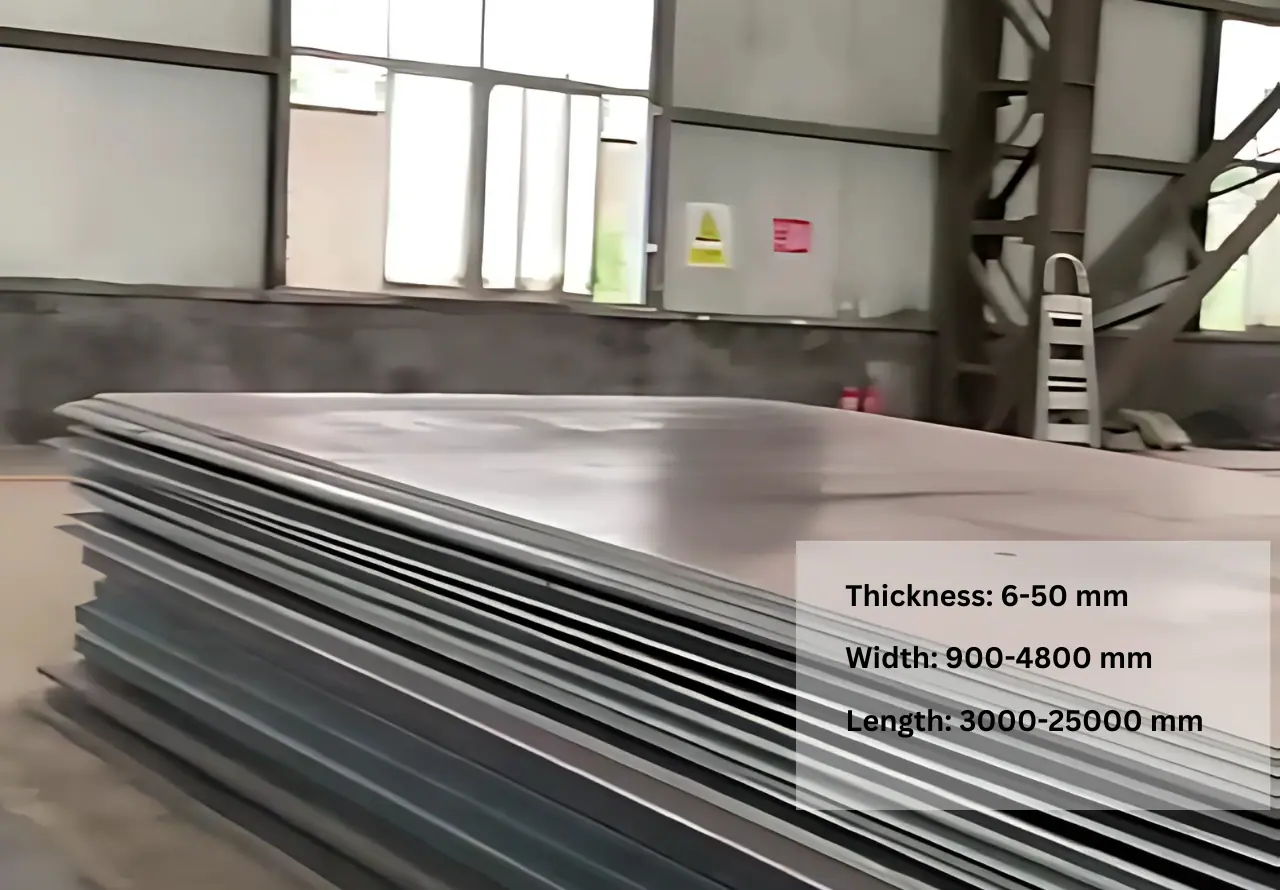
SteelPRO Group offers DH550 high-strength shipbuilding steel plates in stock....
-
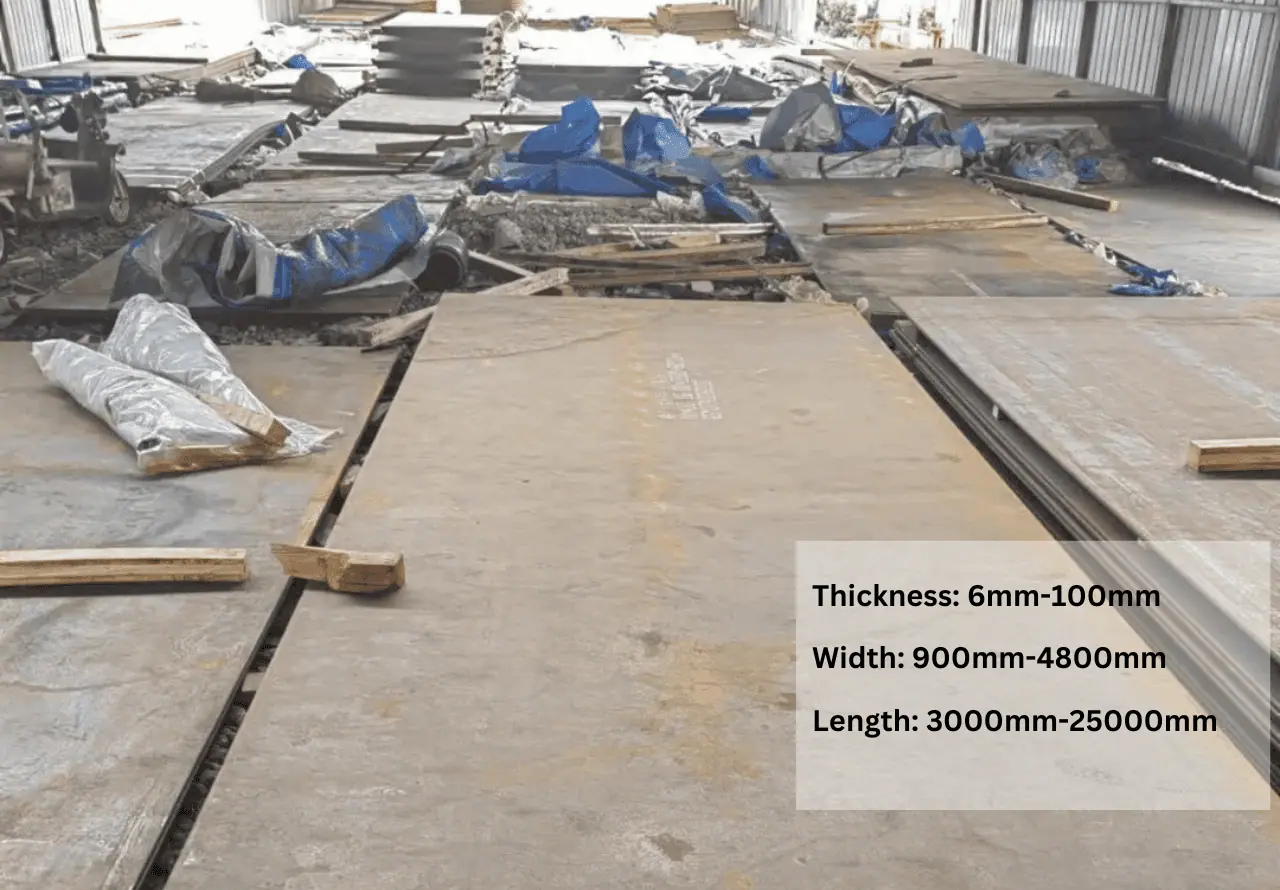
SteelPro Group offers FH36 high-strength steel for shipbuilding. It has...



